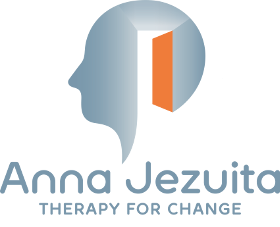Mindfulness Therapy for Low Self-esteem & Confidence
Why are self-esteem, confidence, self-worth important?
Being a part of the ‘pack’ or a ‘tribe’ is one of the natures survival strategies, and consequently rewarded. If we feel that we ‘belong’ and that our position in the pack is secure, we feel good and a sense of safety, conversely if we feel we do not belong or that our position in the pack is unstable, we feel threatened, anxious, and insecure. No wonder many of us spend time trying to assess our social status – “am I in good standing in my family, my work team, my local choir?”
The outcome of such assessment has a great bearing on our sense of well-being. A person who is confident in their merits, knowledge, skills and value will usually state “I am good enough” “I am OK”. If it turns out that there are things to improve, they will not be threatened by criticism. They take it as good advice, to better their position in their social group.
A person with low self-esteem is more likely to say to themselves “I am not good enough” and see their position in the group as weak and uncertain. As a result they end up blaming themselves for the situation and feeling worse, and create a self-fulfilling prophecy. For a person with low self-worth any criticism is very difficult to bear – it is taken as a personal threat and either they will fiercely deny it or else use the criticism for self-punishment rather than improvement.
What is the outcome of your own assessment
Do you often feel?
- like you hate or dislike yourself
- worthless or not good enough
- unable to make decisions or assert yourself
- that no one likes you
- you blame yourself for things that aren’t your fault
- guilt for spending time or money on yourself
- unable to recognise your strengths
- undeserving of happiness
- low in confidence
If so then self-esteem therapy can help you to build your self-worth.
Contact Anna
Are you Self-Critical? Engaging in the ‘Compare and Despair’ game a lot
A natural part of establishing ourselves in a group that we want to belong to, will be to compare ourselves with others in that group, but this has its consequences. For some this activity is performed in a way that creates unnecessary anxiety and pushes them into self-loathing, despair and isolation, as a result of that ‘comparison’.
There are the rules of such a game, do you find yourself engaging in any of them?
1. Following the inner voices – no questions asked.
You compare yourself to others according to the criteria of what it means to be:
“a good child”, “a good student”, “a pretty girl”.
Where did these thoughts come from?
“I’m not sure” you say, however the thoughts are pretty damn strong!
They are the voices of your: parents; teachers; peers; media.
These are the voices of authority and you don’t dispute them, you just try your best to comply, forever feeling that you never even make a dent in all those expectations. And often suspecting that you don’t even agree with them anymore but not feeling confident to turn them off.
2. Select, dissect, despair
You pick someone you would want to be like. You take only one aspect of their lives or personality, for example “she is so talented in music” and then you compare “I will never be like her”… and you despair. You have ignored all the other aspects of who they are and where you may possibly be more fortunate, successful, accomplished.
3. Avoid shame at all cost
Comparing yourself negatively with others leads to the conclusion that whatever you do will not be as good as them and will make you exposed, ashamed and therefore not desirable for the group to have you.
This is a very tiring and unfulfilling game.
Do you feel you would like things to be different?
Mindfulness Self-esteem Counselling with Anna
Mindfulness therapy may help you stop comparing yourself to other people.
It will teach you to recognise the critical voices and understand that they are not necessarily true, and definitely not helpful. It will help you to leave the “compare and despair” game for the benefit of practicing “compare with your personal best”.
Some helpful ideas and articles around self-confidence and self-esteem
Mindful.org
Published an article around how Mindfulness helps us stop the cycle of ‘Compare & Despair’
